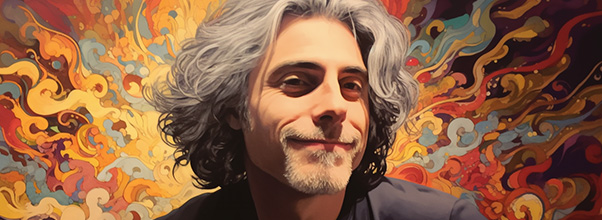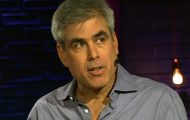Protest music is almost as old as America itself. Before the advent of social media, the only way people could voice speak truth to power was by writing letters to the editor, showing up at political rallies, by word of mouth, and singing songs around the campfire.
Music by the people and for the people without any hint of commercialism or pretense is what’s known as folk music.
Folk music has always been the authentic unscripted voice of the people. Unlike the soulless corporate music of today, folk music was simple, honest, heartfelt, and cathartic. It gave millions of Americans a sense of unifying hope through the shared adversities of the Great Depression, World War 2, and the Vietnam War. From Woody Guthrie to Phil Ochs to Bob Dylan to Creedence Clearwater Revival to Lynyrd Skynyrd, protest music has interwoven itself into the fabric of American music.
But we don’t hear much protest music these days, or even real music for that matter. Music is not enduring anymore, nor is it timeless. With autotune, digital audio workstations, every last bit of soul has been drained out and turned into disposable infantile dreck. This is exactly what the big corporations want.
The Revival of American Protest Music
In the past month, the music world has been rocked by two unlikely protest songs. The first was Jason Aldean’s Try That in a Small Town. It reached number 1 on the main Billboard chart and has received over 31 million views on YouTube and counting. This explosive song has captivated the hearts of millions of Americans who are disgusted by the violence they see in America and feel powerless to stop it.
There there is the hillbilly overnight sensation Oliver Anthony whose Rich Men North of Richmond has taken America by storm with its plaintive commentary on the plight of the working man who’s fed up with a country that has discarded and forgotten him. According to Rolling Stone, his song is #1 in America right now.
There hasn’t been a peep out of Rick Beato about this revival of protest music that has taken America by storm. Beato has interviewed Jimmy Webb, who is perhaps the best country music songwriter to have walked God’s green earth. Ever the accomplished musician, Beato certainly knows the country scene. He’s not stupid. Why the deafening silence on one of the most explosive trends to happen in music in years?
Who is Rick Beato?
Rick Beato emerged as a prominent voice on YouTube’s music landscape. He packages himself as an expert in music theory and analysis. While his background in production and teaching lends him some credibility, his forays into deconstructing popular songs often tread the fine line between insightful analysis and mere fanboy enthusiasm.
These days Beato travels around the world interviewing his geriatric musical heroes like a retiree working on his bucket list.
Beato is most famous for his ongoing YouTube video series called What Makes This Song Great which features songs from the past and not-so-distant past. While Beato has a talent for unlocking some of the musical theory secrets in buried in songs, he often fails to dig deeper into why songs make us feel things.
A song is both lyrics and music. Rick is great on the music equation, but not so great on the lyrical equation. One YouTuber that is much better at analyzing the lyrical and cultural impact of songs is the Professor of Rock.
Political Bias and Fear of Reprisal?
Rick lives in the Atlanta Georgia area. So it would be perfectly natural for him to commiserate with the populist-themed working man songs of Jason Aldean and Oliver Anthony.
Other than I recall he liked one of Mr. Trump Derangement Jeff Tiedrich’s tweets. I have no idea what Rick’s politics are.
I suspect the big reason that Beato is ignoring this is because of the company he hangs around with. Sting and Brian May are on the left side of the political spectrum, perhaps he doesn’t want to alienate them, so he keeps quiet. Most musicians are leftists who would not be sympathetic to today’s populist themes or the people that would vote for Donald Trump.

While I can understand that Rick may not want to talk about politics and alienate parts of his audience, I believe that these two songs in question transcend politics and are reminders that a lot of people in this country feel alienated and marginalized by our so-called leaders.
Conclusion
in many of his videos, Rick Beato rightly laments the sorry state of popular music in the world. But right under his nose is the beginning of a great awakening in music. What is he waiting for? Does he need Sting’s permission to make a video about the stunning revival of protest music? Did Sting and The Police ask permission from Led Zeppelin to record Outlandos D’Amour?
I’ve watched scores of reaction videos from people from all political stripes and all racial backgrounds regarding both Try That In a Small Town and Rich Men North of Richmond. Most if not all, overwhelmingly agree with the sentiment of both songs. Music is not about how many chords you know or how fast you can play, it’s about how it makes you feel. It lets you connect with the pain and joy of others. From a lost love or an unrequited love, music has the inexplicable power to mend broken hearts.
When Rush’s drummer and lyricist Neil Peart gave his acceptance speech at the Rock and Roll Hall of Fame in 2013 he revealed the reason why music is so powerful:
I’ve always liked the quote from Bob Dylan: “The highest purpose of art is to inspire. What else can you do for anyone but inspire?”
Peart and Dylan are 100% right.
Jason Aldean and Oliver Anthony’s inspirational songs have spoken to millions of people from America and around the world. Simply spend a few minutes reading the comments in their respective YouTube videos for confirmation of this. Both of those songs inspired me to write this article. Both of those songs give hope to millions because it’s good to know that we are not alone and others share the burden of life too.
Famed Walden writer Henry David Thoreau remarked that most men live lives of quiet desperation. If that is true, then music is a soothing balm that makes life more bearable. When we hear songs, we are having a shared experience with others that unites us in our humanity.
If these two protest songs don’t inspire Rick Beato, then that’s on him. He has to look at himself in the mirror and ask himself why heartfelt songs about the plight of the ordinary working man working like a slave and living in poverty that are resonating with millions around the world, have no effect on him.
Maybe Rick loves the company of out-of-touch millionaire rock stars like Sting and Björn Ulvaeus from Abba more than he loves the company of an honest man working his fingers to the bone in Appalachia. People get set in their ways. I think Rick’s in danger of losing touch with the common man, his current trajectory is on auto-tune. Maybe he needs more Red Bull and less bullshit.
As a musician myself, I feel both of these songs unquestionably fall into the realm of greatness and are noteworthy enough to be on Beato’s musicology radar. Maybe Rick Beato doesn’t agree. That’s fine. But even he can’t deny that there’s a rebirth of the American protest song going on.
–Wolfshead
Update: Rick’s first video since he returned from Sweden is an analysis of the Top 10 on Spotify. This was basically a throwaway video. Still, he found the time to do this video but nothing on Jason Aldean and Oliver Anthony? Oh, he did an advertisement video for his new Signature SG from Gibson before this, but that doesn’t really count. I hope Rick man’s up. We shall see.






It’s fear. He is aware of the political implications and is either genuinely afraid or calculating and fearing a loss of access to left wingers or loss of subscribers.
Just look who among her cast companions at the Mandalorian dared to speak up for Carano. A few minor stars did, but most didn’t.
Don’t blame him too much. But I agree that such things must be pointed out. It also throwsa bad light on the state of society and debate culture.
I agree.
Fear of loss of revenue from being canceled is at the heart of cowardice in our world. Fear is also what prevents Asmongold from speaking out on woke bullshit being included in the video games he plays and reviews. Every industry is gripped in a state of fear of the people at the top and their shock troops on Twitter from canceling you.
Everyone is living in a state of fear. What a fucked up world we live in.
I think you nailed it for, the most part.
I became a fan of Beato when I stumbled across his breakdown of Gordon Lightfoot’s “If you could read my mind”.
Rick explained elements of the song and the brilliance behind them, that always affected me when I listened to it.
The Professor of Rock, also impressed me with his depth of knowledge and insight, into the singers/writers and music. I’ve not checked to see, if he did an episode on Anthony, but doubt he did.
Both these guys rely heavily on the musical histories, of the individuals/groups, they cover. Anthony Oliver, has little. As such, there’s little material, with which to weave a show around. That’s not a knock on Anthony – hell he could have just learned to play guitar – the song is powerful, thought filled and impactful. Of course I am not making a VLOG about him, so depth of musical history is irrelevant to me and most listening.
I have no doubt, there may be either political bias or and element of fear, at play here. However, I will allow, that there could just be no interest on Beato’s part. After all it’s his channel/content, so he gets to choose what he covers.
I wonder if ten years from now, there will be a “Protest/Anthem Songs of the Woke Era” episode.
Excellent written article!!
Thanks for the reply!
I too am a big fan of Gordon Lightfoot. “If You Could Read My Mind” is one of the finest songs ever written. It’s sheer perfection. I appreciate what Beato is doing generally. I just find it strange he is purposely ignoring this trend when it’s right in his backyard. Jason Aldean is a Georgia boy after all.
Beato tries to be relevant all the time. So it’s strange that here’s something that’s super relevant and he’s not talking about this.
It takes guts to cover things when they are happening. I was alive during the punk movement when nobody I knew cared about it at all. I was into the Ramones, the Sex Pistols, XTC, Elvis Costello, and The Police long before many people had heard about them, including Rick Beato. I went to punk clubs and experienced it firsthand.
At the time I was a huge Zeppelin and Rush fan but punk really spoke to me. Those dinosaur bands were becoming far too progressive, detached, and frankly lazy and drugged up. They lost touch with the common man and starting writing self-indulgent “road songs” unlike punk which was more of an accurate reflection about the world around them.
Beato needs to stop the incessant throne sniffing and stop giving a shit about the worldview of his alumni of celebrity interviewees. It’s impossible to break through the hegemony of his YouTube comments as they are all dominated by his slobbering fanboys.
Hopefully, he’ll come to his senses and give us his take on what’s going on. Carpe diem Rick!
While I agree with everything you said. This is the only place I could find to comment on an article you wrote in 2020 about stevia. I had just found a soft drink with stevia and thought my world was a better place. Until the pain, crippling pain started. I thought I was spitting out another kidney stone! After the cat scan, and the analysis of the urine, I was left with no answer. Maybe an ulcer? Finally, I looked up and found out that stevia is a diuretic! It took me looking about stevia and issues that I found your post! Combined with spastic bladder and the pain, (I had stopped all carbonated drinks, but went back to half a can of the Zevia a day, because I had bought cases of the stuff), it started up again! That stuff is dangerous! Thank you for the only support online that helped me!
I’m glad my article helped you! I have appended your comments to the original article. My article was being suppressed by Google for a few years. I have no idea, but I’m glad it’s now on the first page.